
Designing a Climate Friendly Yard
Published: 05/10/2022 | Updated: 29/03/2023
The most popular way to sustainability is recycled materials to create planters and; and this isn't wrong at all, it's a great way to start. But at the end of the day, there's still a lot more we could be doing to achieve a more sustainable green space. Choosing the right garden plants, reusing harvested rainwater, and fertilizing with homemade compost are some of the practices you might be ignoring when crafting your environmentally friendly yard.


Your outdoor space is a place where you can unwind, enjoy your time, and make great memories with your family and loved ones without leaving your house, and while choosing plants for their beautiful spring flowers might seem like a good idea, we'd like to show you the full picture so you can be more conscious about your gardening choices. Every decision we make can affect our ecosystem positively or negatively, so why not make sure we make the most positive impact starting with our own home?
Adapting your Garden to a New Lifestyle
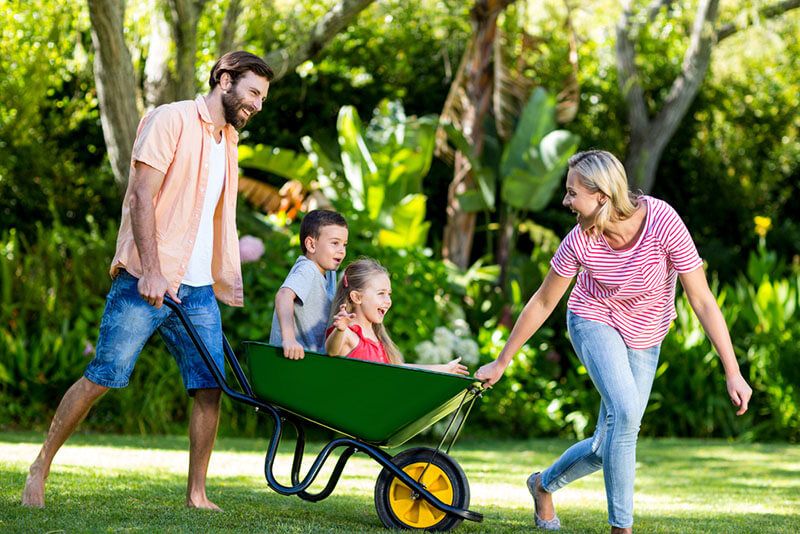
With the recent changes in everyone's lifestyle due to the pandemic and environmental changes, society is more aware of sustainability and is feeling more responsible for the environment! Those are factors homeowners now focus more on when designing their outdoor spaces. Now, more than ever, families have been using every inch of their homes to keep themselves entertained. And while we all have a bit more time on our hands these days, spending that time with your family or unwinding is far better than spending it maintaining a yard.
Why Should You Create an Eco-Friendly Garden?
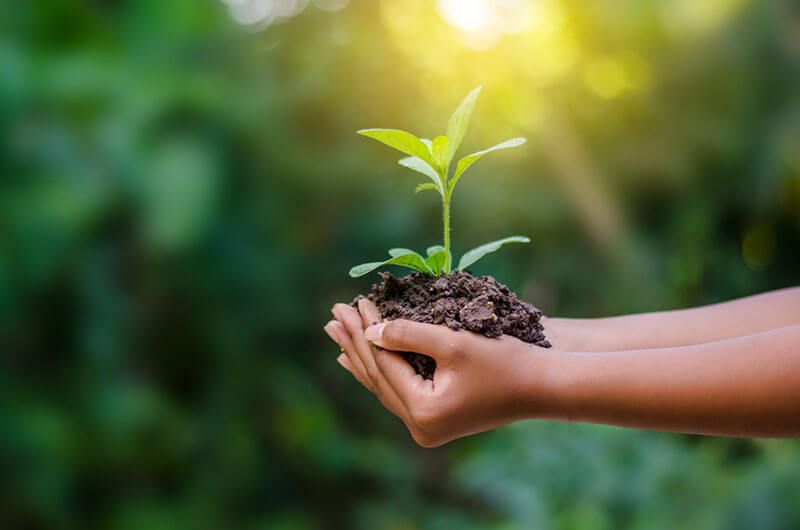
Designing a climate-friendly space does not only give you the maximum return on your investment, but it makes a beautiful, low-maintenance yard for you and your family or friends to take full advantage of—without too much fuss. In the long run, an eco-friendly and climate-friendly approach to designing your outdoor area saves time, energy, and money. Which are all things we can agree are worth saving. Whether you already have your ideal backyard but want to make it a bit easier to maintain, or you’re just embarking on a full backyard makeover, consider these tips to create a climate-friendly backyard.
Choose Native Plants
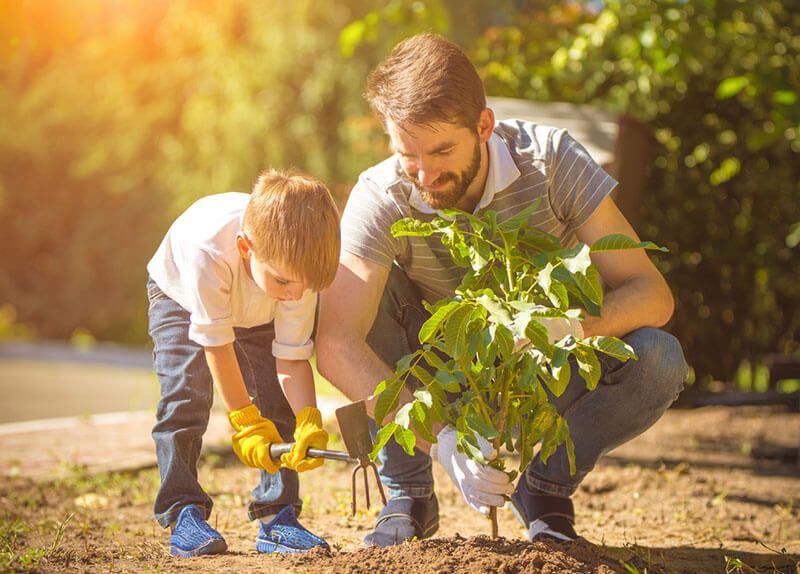
Aside from being a more affordable alternative to alien plants (as in, plants that originate in other types of climates—not from another planet), native plants offer tons of benefits to anyone who's considering sustainability! These species are vital for your city’s ecosystem. Planting foreign trees, flowers, or shrubs can repel beneficial insects, sever the food chain and result in garden pests and lawn disease, degrading your local habitat. Both the environment and your pocket will thank you once you add native trees and shrubs to your landscape
What are Native Plant Species?
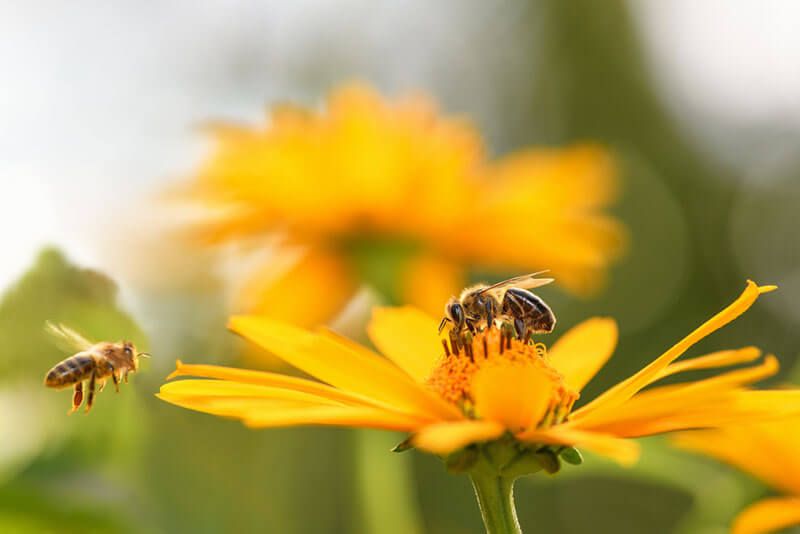
Native plants are ones that have been adapting to the environmental conditions and changes over the years which is why they generally require less maintenance than non-natives, they also do not wear the soil out as much as non-natives would, due to their adaptive nature. Including native plants is a perfect way of attracting beneficial insects (mainly pollinators) such as bees, butterflies, and hummingbirds which will guarantee healthy plants, serve as natural pest control, and help your ecosystem! All these factors make native species a must for anyone who'd like an eco-friendly garden!
What's so special about native species?
These plants generally require very little maintenance. Many native species also offer beautiful flowers and an array of colors that complement your yards, so you won't have to worry about your yard looking sparse or dry! And since those plants are already adapted to local environmental conditions, they require less water. They are also locally available, making them more affordable and easier to find. As a bonus, your native plant garden will support the local fauna so you can be a friend of the environment simultaneously. It’s a win for everyone!
Succulents, Succulents, Succulents
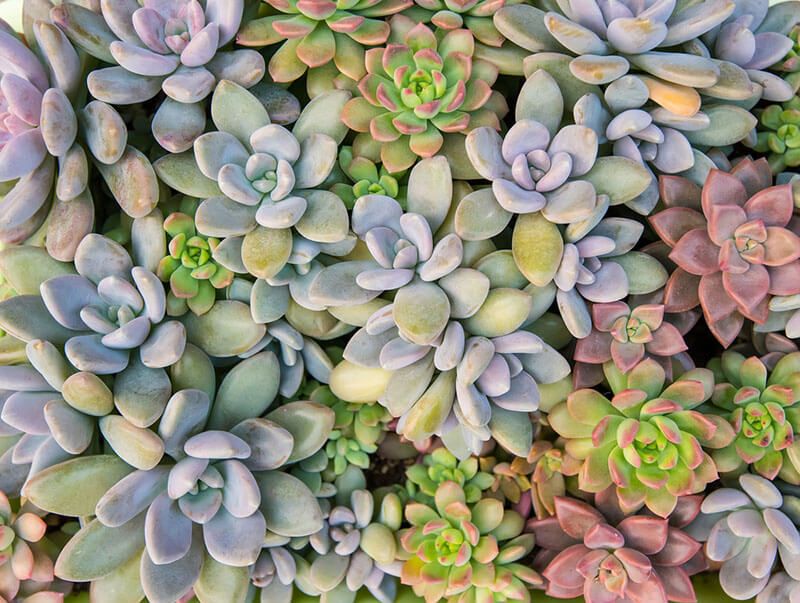
There are so many benefits that come with planting succulents in your climate-friendly backyard. They are hardy and have the ability to thrive in a wide variety of climates, from seaside cliffs to deserts and even frigid mountains. Succulents can be used as ground cover, they will add green to your backyard and will bloom in season, giving your yard a splash of color.
Unlike other plants, succulents don’t release carbon dioxide at night. Instead, they produce continuous bursts of oxygen. They’re as useful to have around as they are easy to care for, and there are countless species from which to choose. Succulents are also very drought friendly so they won't waste natural resources, they can live through harsh conditions like poor soil, drought, and heat! So, if you're looking to reduce consumption and create an area that will help the environment, Succulents are definitely a big option to consider!
Go For Less Demanding Plants
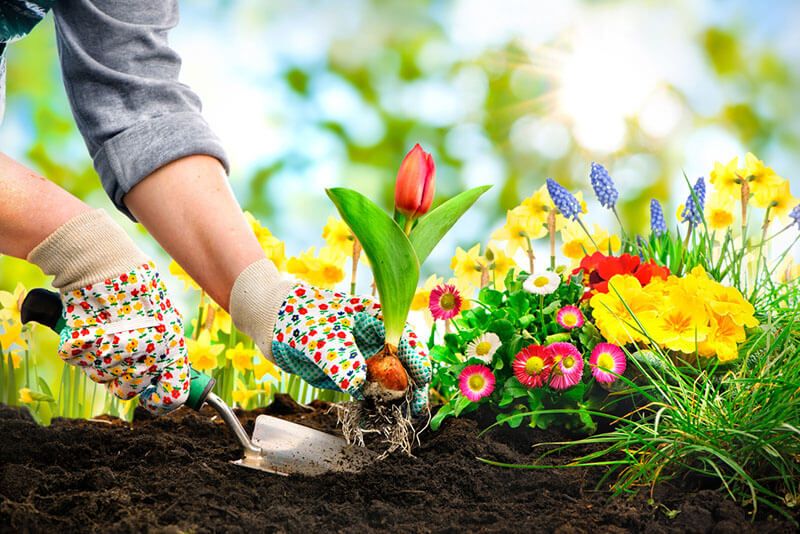
A rose bush is beautiful to look at but requires a lot of attention. That’s not to say you can’t enjoy your favorite plants just because they’re overly needy, but you can limit the number of plants that demand your time. Find plants and trees that won’t require a lot of work as they grow. And no, you don’t have to fill your entire yard with succulents. There are plenty of beautiful flowers and such that easily grow in various climates and aren’t nearly as delicate as they look.
Hardscape With Permeable Materials
While this may not be an option for all outdoor areas, if you can choose materials for your hardscaping that allow rainwater to permeate the soil, you’ll have a much more efficient yard. This type of hardscaping allows irrigation, prevents runoff, and helps reduce erosion, which helps preserve natural resources and reduces water pollution! Organic mulches, gravel, stone, and permeable patio pavers are great options for any backyard, as all can add a bit of beauty and magic in their own way.
Switch Groundcover Lawns with Low Maintenance Rockscaping
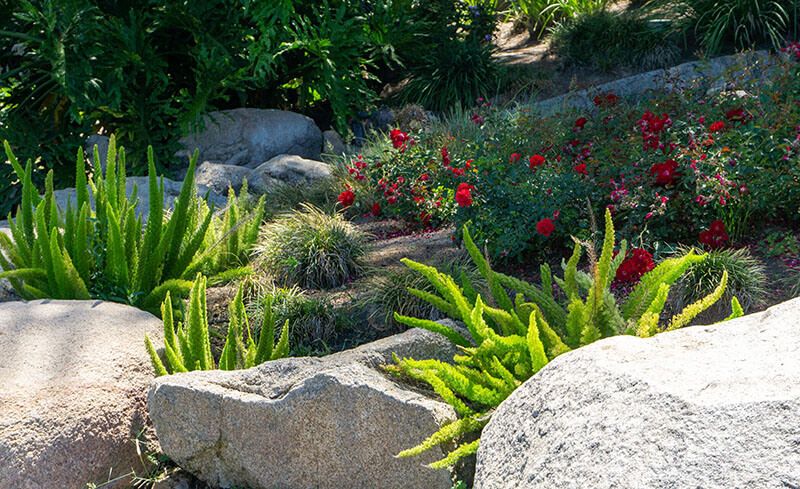
Sure, grass is beautiful. Most of us grew up thinking a fresh-cut, bright green lawn was the mark of a good homeowner. But grass lawns are extraordinarily high-maintenance and can cost a ton of money to keep watered and healthy. During droughts, when water usage is limited, that lawn will turn brown and crunchy pretty quickly. Replacing part of your lawn (or all, if you want) with smooth rocks, stones, or large boulder accents will vastly cut down upkeep and costs. It adds an interesting and rugged look to the yard and can act as a weed suppressor. Rocks are also a perfect habitat for succulents, giving a lovely contrast to your yard while remaining climate-friendly.
Artificial Turf
Some families with pets and children will find it hard to go to zero grass, in which case, artificial grass might be the best option! While it is a more expensive option, it gives you the beautiful look of natural grass minus the required high maintenance and more benefits to the ecosystem! Artificial grass is also the best way to go if you're a pet owner or have younger children as it reduces trip accidents and offers a more even surface for running!
Consider Decomposed Granite
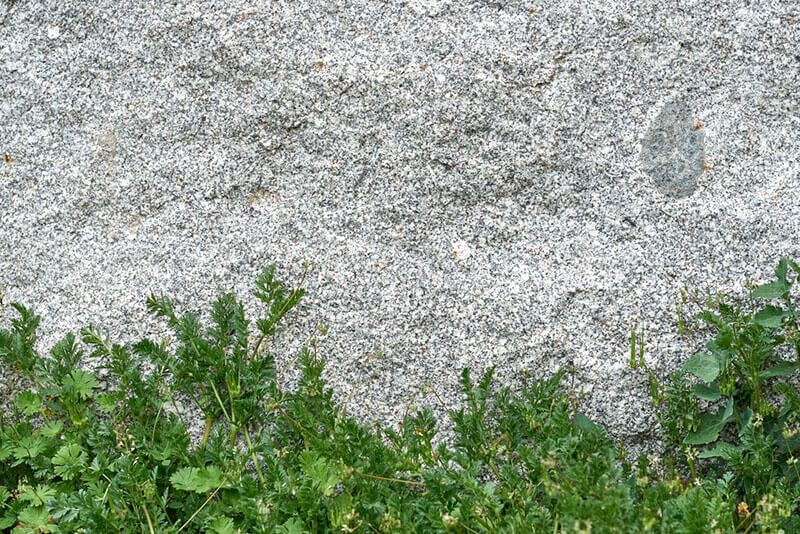
If keeping a bit of grass in your yard is a must, you can still greatly reduce watering requirements and care that the grass needs by creating pathways or entertainment areas using decomposed granite. Decomposed granite also works as a more affordable alternative for concrete and is considered a permeable hardscape material.
Some things you need to know about DG!
Natural weathering and erosion of solid granite, a tough, hard, igneous rock create decomposed granite. Unlike standard gravel, decomposed granite has much finer particles and is generally more stable. The colors vary from buff to brown, and it’s commonly used for paths, yards, and driveways. For the yard, decomposed granite is a climate-friendly option that requires very little maintenance. You can line spots DG was used with various plants and foliage to bring some green into the equation.
Natural DG, a type of decomposed granite, is often used as a mulch material and can be spread around trees and garden beds much like wood mulch. As it withers and breaks down, it provides nutrients to the surrounding soil and plants which makes it a great option when thinking of environment-friendly decisions. It also has a longer life when compared to other mulches and won’t attract pests!
Opt For Eco-Grass
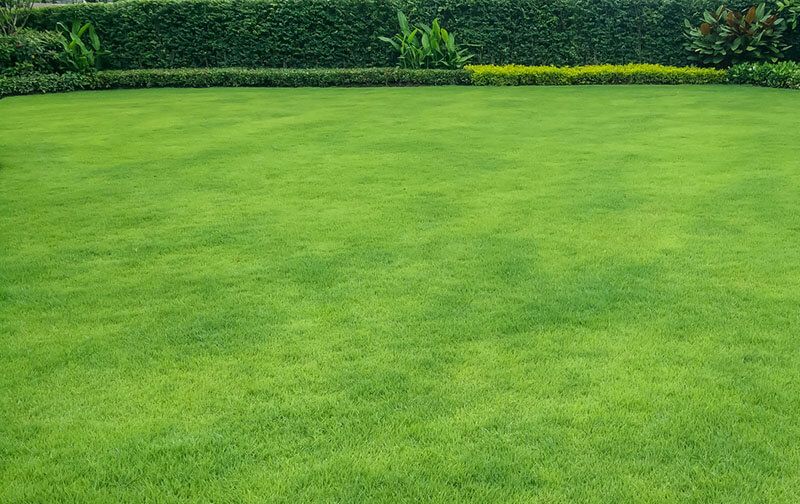
Eco-Grass also referred to as NO-MOW, is an excellent choice if you truly love the look of grass in your backyard but don’t want the headache typically associated. This versatile grass establishes quickly and can go without mowing or be mowed to a recommended 3” height occasionally or frequently, depending on rainfall and intended use. It grows in most soil types and can handle most sun conditions, but it doesn’t fair well with wet soil or too much shade.
They have thin blades and deep root systems that help reduce waste, making them a big money-saver in the long run. Eco-Grass also reduces the need for pesticides and fertilizer and doesn’t require frequent mowing.
Choose the right irrigation system
One of the best irrigation systems when thinking of sustainable yards is drip irrigation. Drip irrigation is a tool that provides a ton of benefits such as preventing runoff and waste. It works by feeding the smaller amounts of water to the plant roots directly making it easy for nutrients to reach the plants! imagine not having to drag your garden hose out or worry about keeping your plants alive all while being environmentally conscious!
Xeriscaping
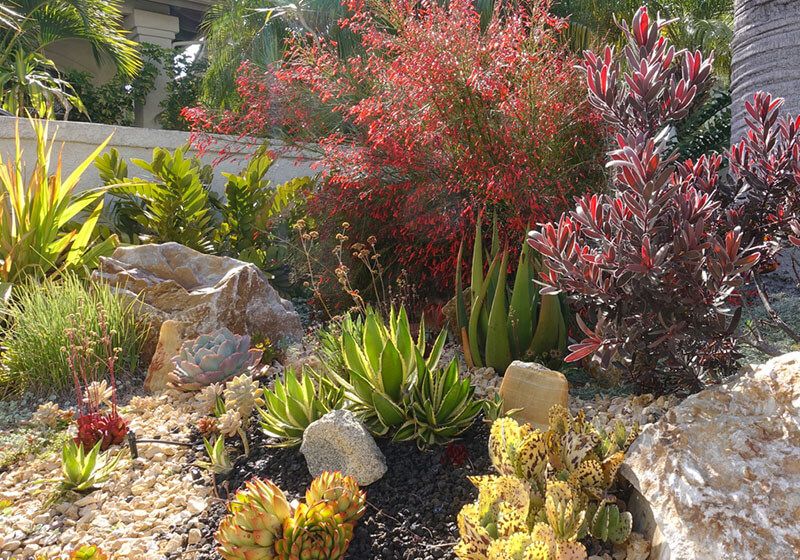
Xeriscaping is basically a mix of all we've mentioned above, it uses native or xeric plants, an effective irrigation system, and permeable hardscape materials combining all the benefits mentioned above! Choosing to xeriscape doesn't necessarily mean having to only use xeric plants or a dry style, as you can mix and match other plants and non-natives to maintain an aesthetically pleasing design while making the most of your yard. xeriscaping requires low to no watering, so you'd be saving a ton of effort on top of being sustainable.
Vegetable Gardens
Making your own at-home vegetable garden is another element you can enjoy while contributing positively to the planet’s well-being! When you grow your own food organically and without using chemicals, you’re not taking part in unnecessary pollution and fossil fuels resulting from it! Though, growing your own vegetables has so many benefits beyond being super environmentally conscious! Freshly picked vegetables taste so much better than store-bought and they’re also way cleaner so you’re ensuring healthier and safer food for you and your family! You can also save up to 1000$ a year growing your own vegetables rather than buying them at the store!
Consider growing your own herb garden! Herb gardens will be a great addition to your outdoor setup, many herbs are very tasty and promote gastric health, so you’ll be adding more to your garden while gaining great product! By investing in an outdoor vegetable and herb garden, you'll have a beautiful hobby and a way to relieve stress all while growing your own edible plants and contributing positively to the environment.
Natural Pest Control
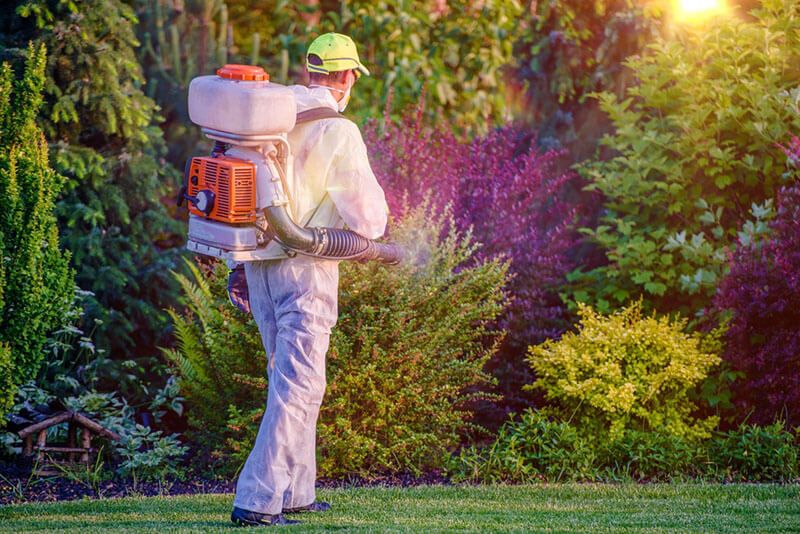
Since pest management methods are often bad for the environment as they result in pollution, when trying to stay climate and environment-friendly, it’s highly recommended to use natural insecticides and herbicides pesticides. Natural and botanical insecticides tend to break down very quickly leaving minimal room for contamination and pollution! They’re also significantly less toxic in nature than normal pesticides since they’re of plant origin.
Utilizing natural insecticides will help with your lawn care mission without causing disturbance to the environment. Some natural non-toxic pesticides are neem oil, cedar oil, and rosemary oil amongst others!
Create Your Own Compost Bin
Another option to consider for your garden that is both, very environmentally friendly and beneficial for your soil's health is compost Bins!
What are they?
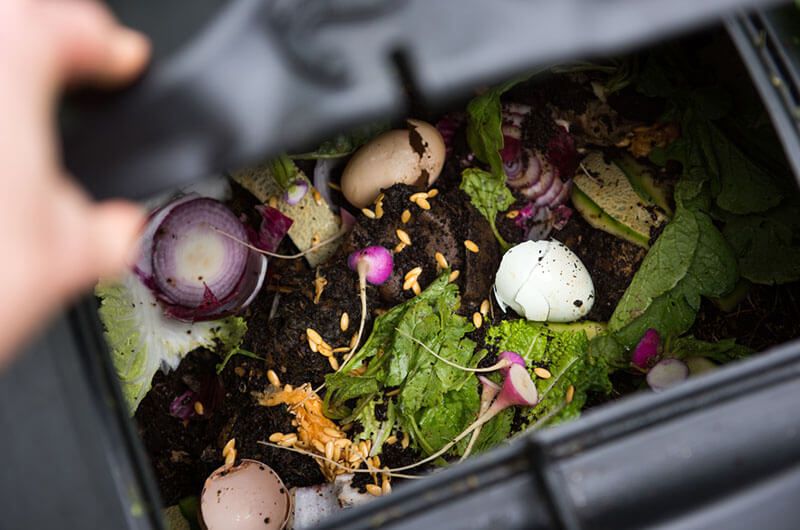
Compost bins are containers where you can keep your organic waste, they work by speeding up the decomposition process as they provide the right environment for decomposition with a balanced mix of organic waste, heat, and air.
Why should you consider one?
Compost bins are a relatively easy project! You can create your own compost bin without needing professional help as it can be a very simple DIY project with the right guidance. You can build your own bin with a plastic bucket, trash can, or a plastic tote if you’re looking to stay budget-friendly and get the same result! You can also DIY a more elaborate/permanent one by building it with wood or wire fencing. Compost bins are a great way to turn your organic house and garden waste into notorious food for your garden that will promote soil health and improve the soil quality (All while getting rid of any organic waste). These features are very convenient as they only use organic matter, you will easily find great advice online to make sure you’re creating a healthy well-functioning mix! You’ll be able to use fruit and vegetable scraps, eggs shells, tea bags, and dried leaves! After letting the magic happen in the bin, you’ll have your self-made free fertilizer to maintain healthy soil!
Smarter options for an easier life

Climate and environment-friendly options are the way to go when it comes to designing and creating the backyard of your dreams! As they ensure less work and more sustainability so you can spend your time enjoying the yard you created rather than maintaining plants and pacing back and forth, worried you’re over or under watering plants. Your wallet will thank you, and so will the environment. But mostly, all that time you’ll save can be allocated to making memories.
Looking for more ideas?
If you're looking for more ideas head over to shrunhub.com and get connected with professionals who will guide you from finding your style to executing a design, you'll enjoy for years on! our experienced landscape designer keep all different aspect of design in mind from your house style to your planting zone and city rules to ensure a design that's both very practical and visually beautiful! We will give you advice and recommendations for suiting plants for your climate to ensure increased home value and ecosystem protection!


